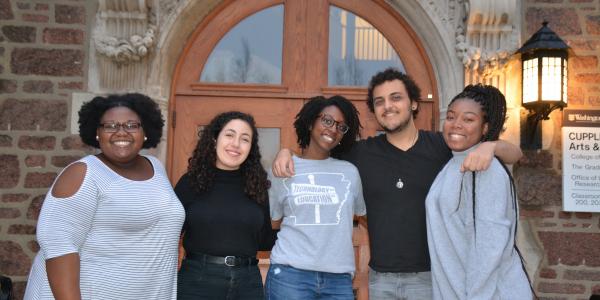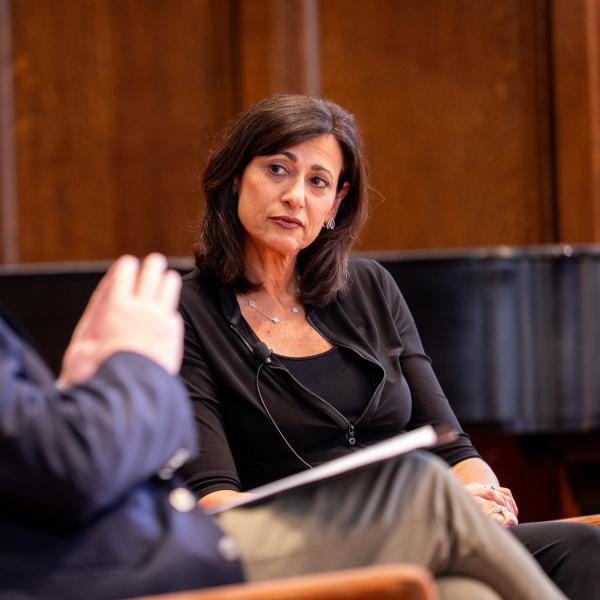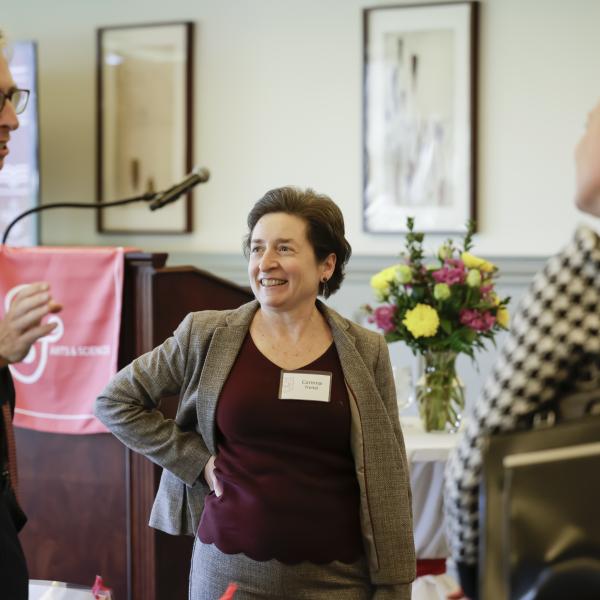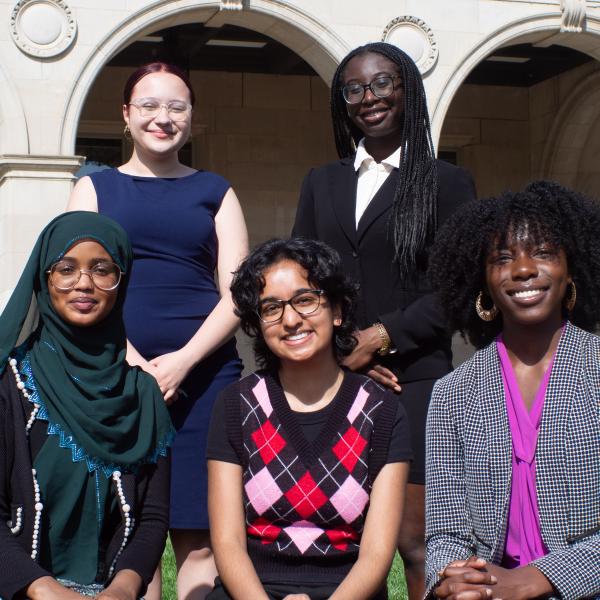This year, the Mellon Mays Undergraduate Fellowship Program (MMUF) is welcoming its 26th cohort of fellows. The five fellows selected this spring were chosen from among the highest number of applicants since the program came to WashU’s campus in 1992.
This two-year fellowship funds original undergraduate research projects in the humanities and social sciences that pertain to identity, social justice, and diversity. Students apply to the program as sophomores and work closely with a faculty mentor during the semester and the summers as they develop and conduct their research. During the fellowship, students also have the opportunity to participate in the annual Mellon Mays Research Symposium and to attend the annual MMUF Midwest regional conference. Unique to WashU’s program is a weekly three-credit writing intensive seminar, currently led by Professor Rafia Zafar.
Zafar, professor of English, African and African American studies, and American culture studies, was named director of the program in the spring of 2017. Her own research focuses on food, authorship, and American identities. Later this year, her study “Recipes for Respect: African American Meals and Meaning,” will be published in the Southern Foodways Alliance series from the University of Georgia Press. This work, Zafar explains, “examines the ways African Americans leveraged cookery, entrepreneurship, and publication to access civil rights and social mobility.”
Since she arrived at WashU in 1998, Zafar has mentored numerous fellows in the program, both as direct advisees and as students in her classes. She mentions that former students are now on the faculties of various well-known institutions, such as Queens College (CUNY), Johns Hopkins University, and WashU. “To lead the Mellon Mays program is a natural outgrowth of my commitment to undergrad education,” she says.
The high number of applicants to the program this year made it especially difficult to select only five students. However, Zafar notes that the selection process is always a challenge. “We were very impressed by the high quality of the 2018 applicants—but of course I can say that about the earlier cohorts, too,” she says. “The limit the Mellon Foundation sets for us—only five new students can enter a year—makes it super-tough when you have such a wealth of compelling student projects. My personal hope is that the students who applied and were not selected do not give up on their very interesting projects.”
Indeed, Zafar hopes that her work with MMUF will impact students even beyond the program. “I would like more students––whether they apply to MMUF or not––to consider how conducting research, whether through independent studies or writing senior theses, can enrich and enliven their undergraduate experiences,” she says.
This year’s fellows are embarking on projects that span an ambitious range of topics, and they are joining a legacy of passionate scholars committed to critical fields of study. Meet the new cohort below, and hear about their individual academic interests:
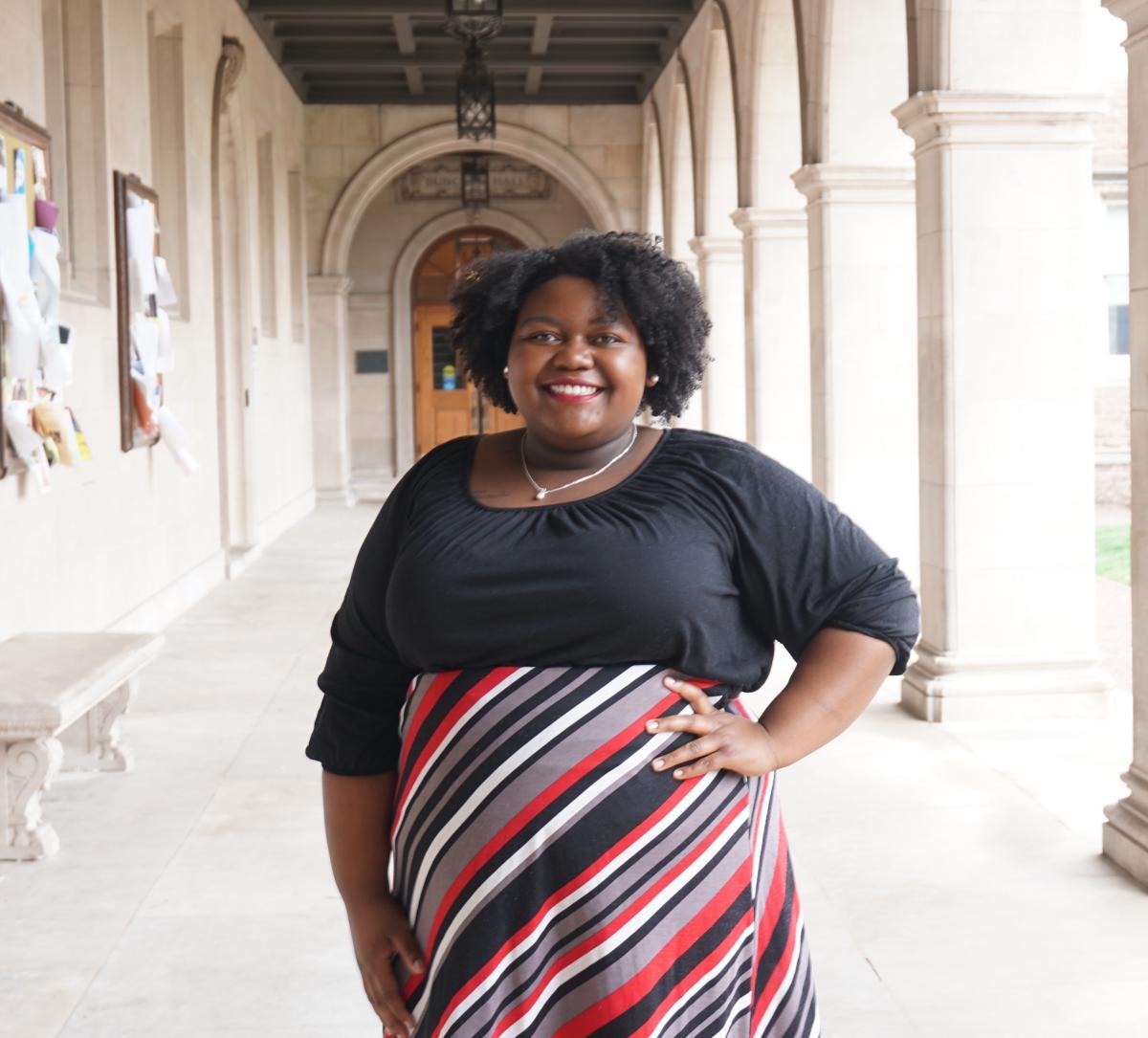
Amanda Everett
Major: African & African American Studies; Comparative Literature minor
Project Title: The Black Arts Movement in the Lives of Black Women in the American South
Project Description: My project is examining the way Black women in the United States South received and responded to the ideas of the Black Arts Movement. I will examine the way the Black Arts Movement impacted the everyday lives of these women, as well as how it affected the way they interacted in their local communities and in the larger social movements in 1960s and 1970s America.
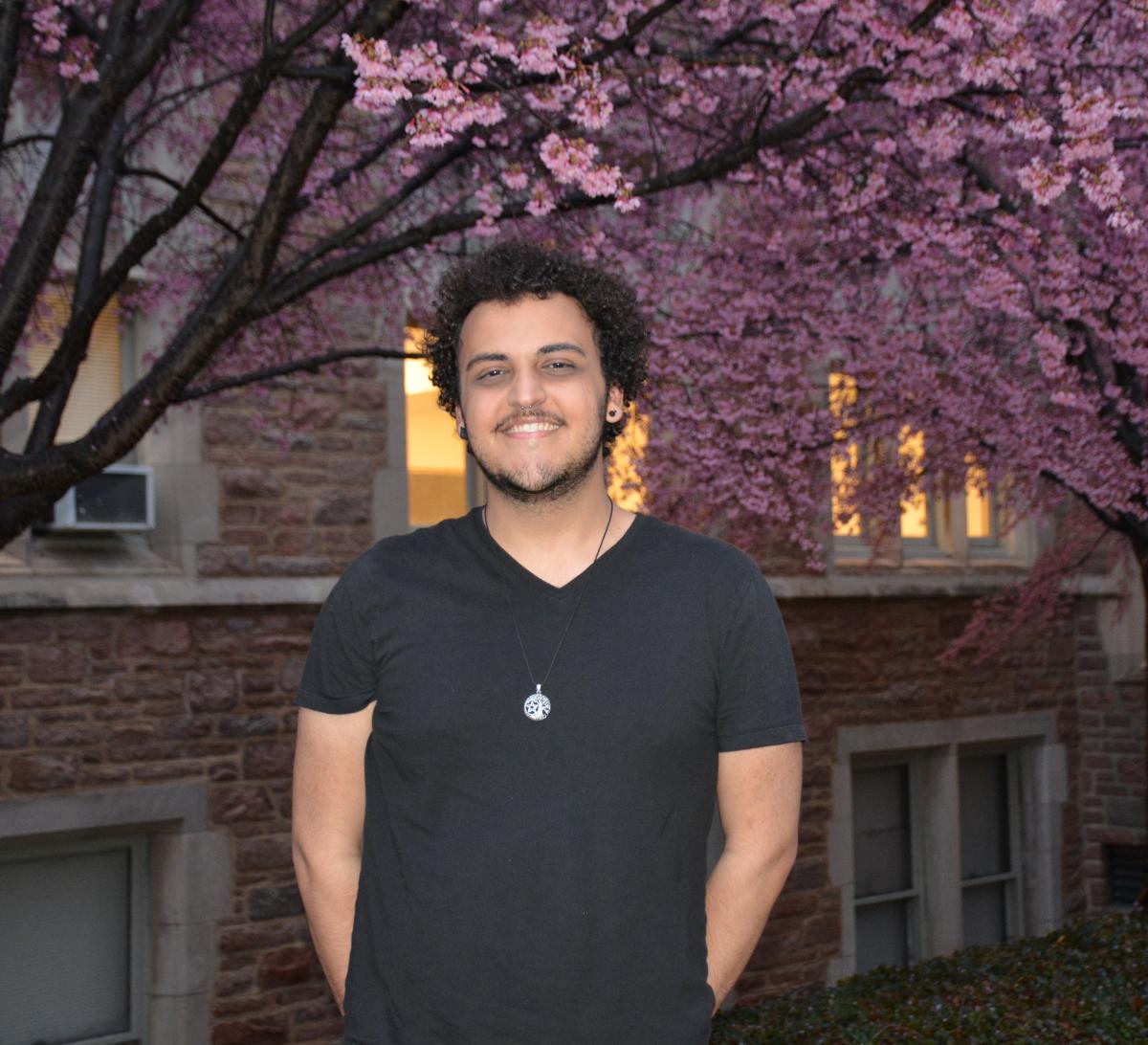
Theaivin Gaber
Major: Women, Gender & Sexuality Studies
Project Title: Disrupting Sensuality: Sensation in a Colonial World
Project Description: My project is looking to analyze how colonialism, imperialism, capitalism and the current hegemony operate through our senses. If senses are not objective, but rather distorted and manipulated by our social worlds, then they are inevitably linked to specific historical structures of power. My project seeks to analyze how these sensory regimes have been constructed within the history of modernity.
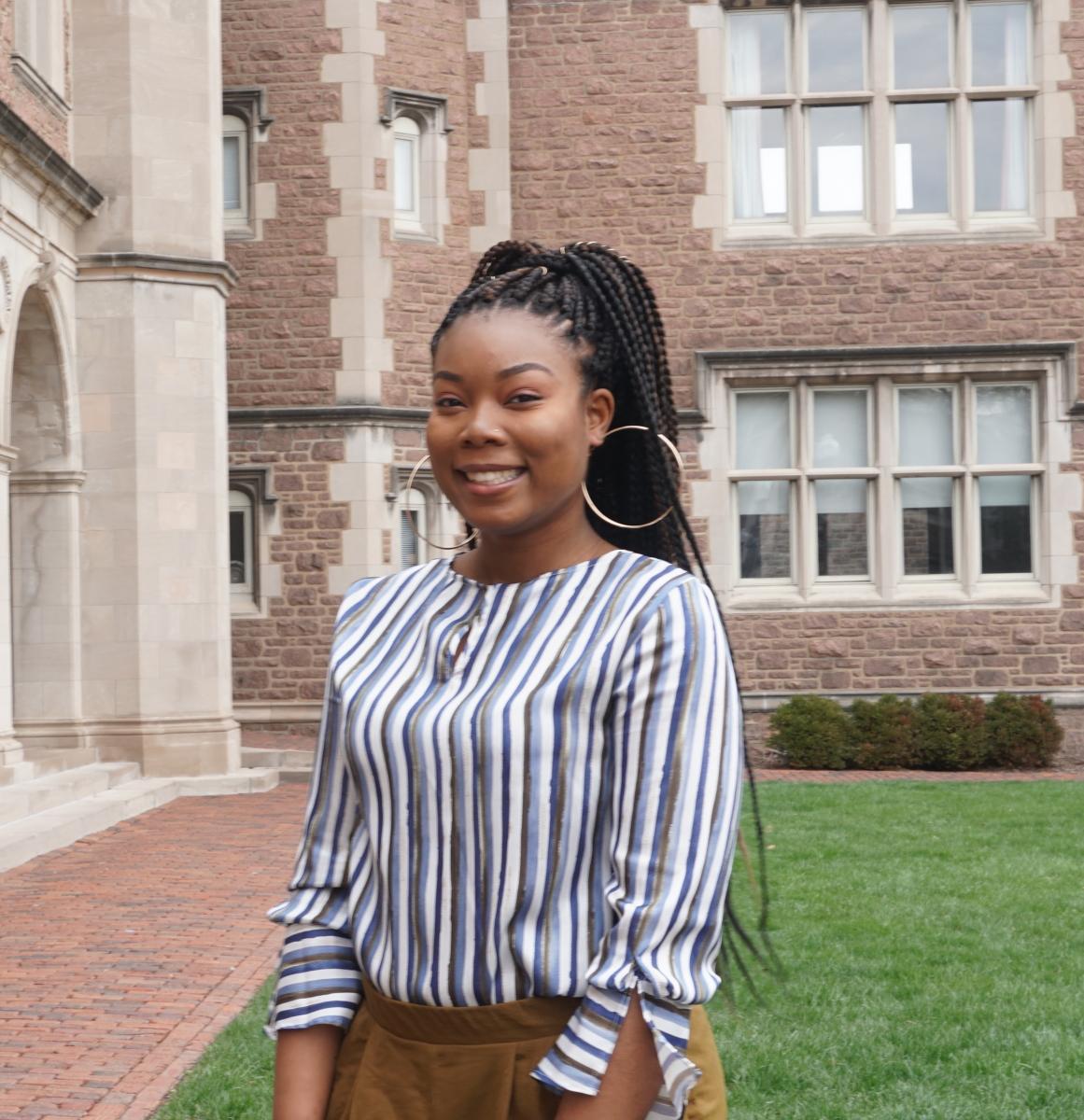
Nya Hardaway
Major: African & African American Studies
Project Title: Modeling Modernity: Black Lady Lovers Rejecting Oppression, Black Middle-Class Values, and Embodying Resilience during the 1920s-1940s
Project Description: Exploring how Black women perform sexuality as an expression of freedom through music, my project is focused on the way in which Blues music intersected with and impacted the performance of sexuality of working-class Black women during the 1920s-1940s. I aim to examine this exhibition of Black women's sexuality during this time as a rejection of oppression and Black middle-class values and also as an embodiment of resilience.
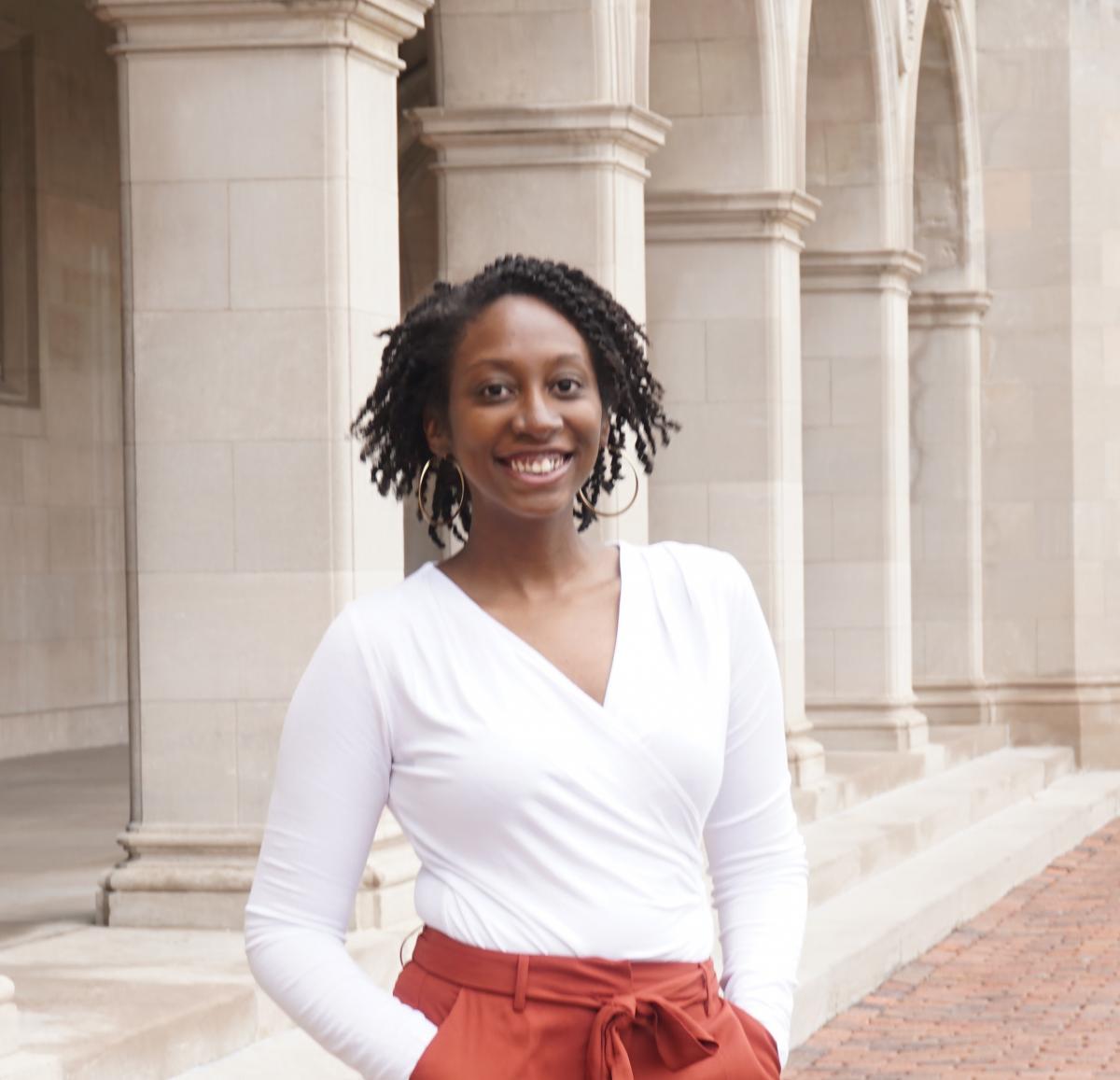
Taylor Smith
Major: African & African American Studies
Project Title: The Depth Within: Conceptualizing the Aesthetics of Black Women’s Interior Self in Media
Project Description: In scholarship and current debates the politics of representation are often centered on the quota-driven nature of diversity. There lacks a focus on the ways to accomplish representations of Black women that validates and champions their humanity. Further complications arise when Black female artists attempt to depict the inner lives of Black women and transform those depictions into forms of art production for mass consumption. Building off of the works of existing Black female scholars, my project aims to begin to cultivate a conceptual framework of the ways Black women interpret, archive, translate, and replicate stories of the Black interior into consumable media for varying audiences and registers.
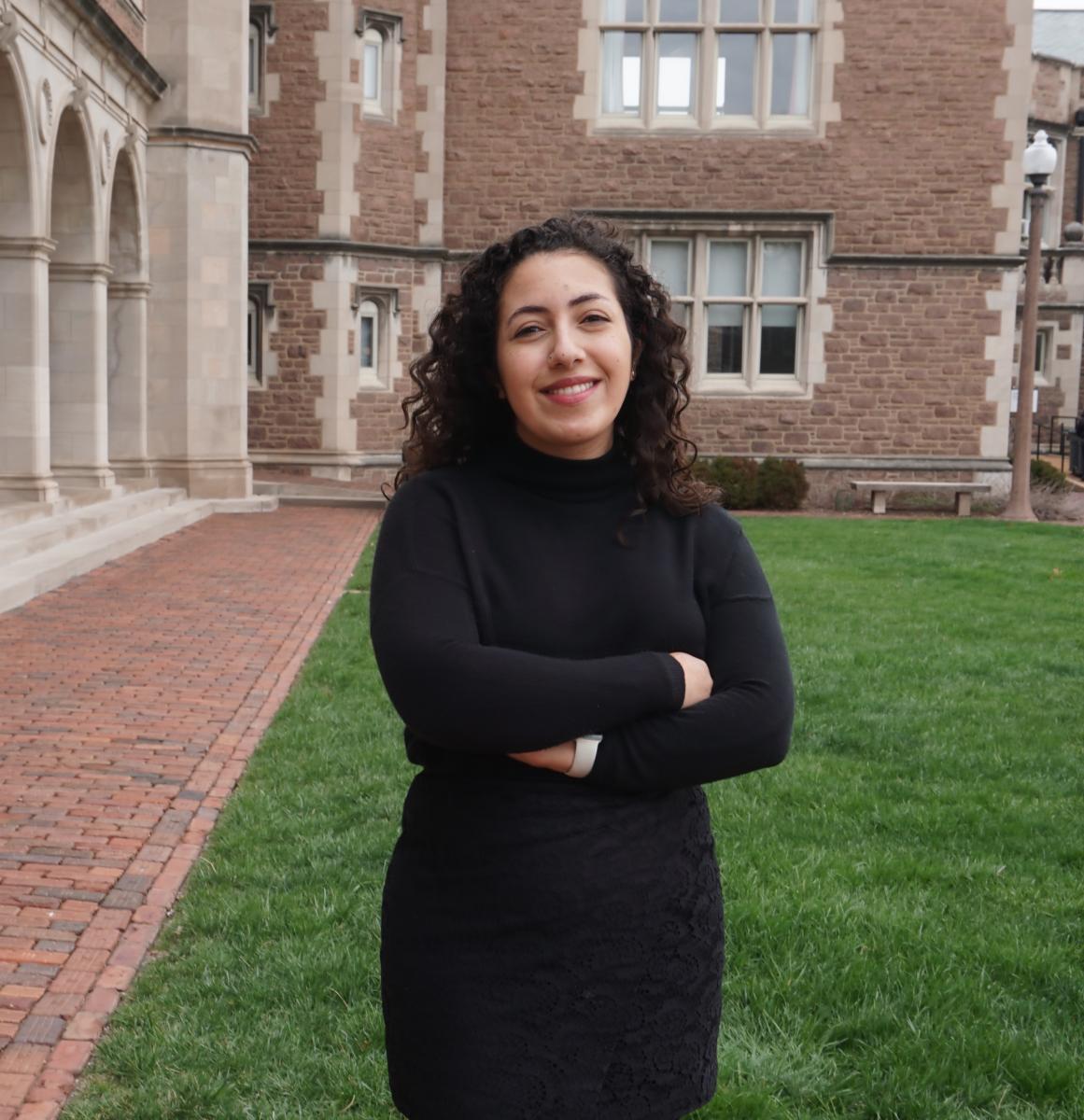
Amelle Zeroug
Majors: History, Political Science
Project Title: Affluence and Armaments: The Impact of Class on Militancy in the Algerian War for Independence
Project Description: My project examines the impact of class and gender on determining an individual’s involvement in militant revolutionary action by looking at the “Mujahida”; women in the Front de Libération Nationale during the Algerian War who used their gender to carry out attacks on centers of French civilian life in Algiers.
